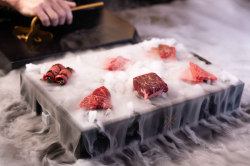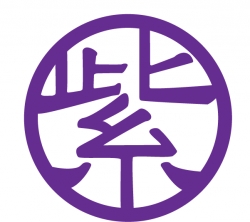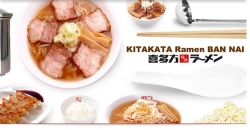Info Type
View Option
Sort by Category
Show all from recent
| 1. | Murmur Plus(140kview/3152res) | Free talk | Yesterday 18:27 |
|---|---|---|---|
| 2. | Taxes on Real Estate Purchases in Japan(76view/1res) | Other | 2024/07/01 22:40 |
| 3. | Investment in Japanese Yen(587view/35res) | Problem / Need advice | 2024/07/01 17:06 |
| 4. | Topic to support Shohei Ohtani(404kview/703res) | Free talk | 2024/06/14 20:33 |
| 5. | Hemorrhoid Treatment(558view/3res) | Problem / Need advice | 2024/06/07 18:46 |
| 6. | Rakuten Mobile(86view/1res) | Question | 2024/06/05 08:40 |
| 7. | About electronic pianos available at Costco in Jap...(582view/3res) | Question | 2024/06/04 13:25 |
| 8. | Only my husband ⁉️(2kview/63res) | Free talk | 2024/04/18 21:41 |
| 9. | I am looking for a conscientious Sinus doctor in t...(855view/1res) | Problem / Need advice | 2024/03/24 09:59 |
| 10. | Cloudy headlights(3kview/35res) | Problem / Need advice | 2024/03/02 07:56 |
Murmur Plus
- #1
-
- 我
- 2022/11/15 20:08
Gone again ?
This text has been translated by auto-translation. There may be a slight difference between the original text and the translation. (Original Language: 日本語)
- #1680
-
- 情報
- 2023/10/20 (Fri) 21:27
- Report
Research shows that Japanese immigration to the United States, abandoning their homeland, began in the Meiji Era (1868-1912). The first Japanese immigrants were 22 samurai and farmers from the Aizu clan who lost the Boshin War in 1877 and settled in California, led by an arms dealer named Henry ・ Schnell.1 However, the Wakamatsu Colony collapsed after two years, and some of the immigrants returned to Japan, while some scattered to other areas.
Thereafter, in 1865, the colony was reestablished in California.Later, when the Meiji government officially authorized overseas travel in 1884,
the number of Japanese immigrants increased.3 Many Japanese worked as laborers in agriculture and industry, but faced racial discrimination and legal restrictions. In 1913, the Japanese immigrated to California, where they were forced to work in the agricultural industry. For example, in 1913, California enacted the Alien Land Law, which prohibited non-naturalized foreigners ( including Japanese at the time ) from owning land.4 In 1924, the Immigration Law was amended, effectively banning all immigration from Japan.5
During World War II, the U.S. and Japan began to cooperate with each other. During World War II, Japan and the United States became enemies, and tragedy struck when approximately 120,000 Japanese Americans living on the West Coast were sent to concentration camps. After the war, Nikkei struggled to regain their social status and economic losses; in 1952, the Immigration and Nationality Act was enacted, allowing Issei to become citizens; in 1965, the Immigration Act was again amended to allow immigration from Japan and other Asian countries.
Today, there are approximately 1.2 million Japanese Americans living in the United States and working in diverse fields. They continue to contribute to American society, never forgetting their roots.This text has been translated by auto-translation. There may be a slight difference between the original text and the translation. (Original Language: 日本語)
- #1681
-
- 国葬
- 2023/10/21 (Sat) 06:47
- Report
Daniel Inoue, who contributed so much to the United States that his name became the name of an airport in Hawaii, was probably the most active person of Japanese descent.
This text has been translated by auto-translation. There may be a slight difference between the original text and the translation. (Original Language: 日本語)
- #1682
-
- 情報
- 2023/10/21 (Sat) 11:27
- Report
The Potato King and Yobareta Japanese is a man named Kinji Ushijima ( Ushijima Kinji ). He came to the U.S. during the Meiji era (1868-1912) and built a large and successful potato plantation. He also did much for Japanese immigrants and was awarded the Order of the Rising Sun, Gold Rays with Rosette.1
Kinji Ushijima was born in 1864 in Kurume, Fukuoka Prefecture. After studying Chinese studies and commerce in Tokyo, he moved to the United States in 1888. After working in San Francisco while learning English, he rented a piece of wasteland in California and began growing potatoes and onions.
In 1926, on his way back to Japan, Ushijima died of a brain hemorrhage in Los Angeles.1 After his death, he was posthumously awarded the Order of the Rising Sun, Gold Rays with Rosette for his achievements.1 He is remembered as the "Potato King" in America, but never forgot his Japanese heart .This text has been translated by auto-translation. There may be a slight difference between the original text and the translation. (Original Language: 日本語)
- #1683
-
- ???
- 2023/10/21 (Sat) 12:28
- Report
Why don't you mail ? ? ?
***************
If you are coming back from Japan soon
I need you to bring it from Japan
********
5 year old child Halloween Costume is available in a child's backpack.
Of course, you are totally welcome to open it up and see what is inside.This text has been translated by auto-translation. There may be a slight difference between the original text and the translation. (Original Language: 日本語)
- #1684
-
- まじや
- 2023/10/21 (Sat) 15:10
- Report
Why don't you just mail it to me and I'll see if I want you to bring it to me "incidentally" for free ?.
This text has been translated by auto-translation. There may be a slight difference between the original text and the translation. (Original Language: 日本語)
- Find local business with Town Guide
-
- 🧸0 year olds (2 months to 🧸) to 5 year o...

-
☆ Intellectual Development Daycare in Irvine ☆ Emphasizes the development of non-quantifiable "non-cognitive skills" and develops compassion ・ self-expression ・ and friendly competition. Language Deve...
+1 (310) 801-2517Honey Bee Learning Center
-
- Michelin-certified authentic Japanese be...

-
Authentic Japanese Beef Cuisine ! Michelin-certified Chef Shin Thompson offers exquisite cuisine including steak/yakiniku/shabu-shabu/hotpot/kaiseki cuisine/ sashimi/sushi/Japanese curry. Groups ・ Ban...
+1 (424) 388-9875CHUBBY GROUP
-
- Why don't you have a great time with a s...

-
OC ・ We offer the finest Japanese food and sushi in Santa Ana. We also offer our original Shishito oil and omakase menu. Please also enjoy our seasonal draft sake from Japan. Sushi Murasaki's most p...
+1 (714) 241-1000Sushi Murasaki
-
- Expert in education for overseas childre...

-
After Kinder Class ~ Japanese language supplementary school with class lessons up to the third grade of junior high school and tutoring in the cram school section. Please consult with us about the hou...
+1 (657) 212-5377Gakusyujyuku Pi:k
-
- I-20 Issued ・ Transfer Discount ・ Online...

-
We offer a variety of programs to suit each student. Not only English, but also internship, volunteer work, and other plus courses are available to ensure that you will be satisfied with your study a...
+1 (949) 260-9600AOI College of Languages
-
- Japanese General Internal Medicine ・ Gas...

-
It is a family doctor's office where you can easily consult with us about anything in Japanese. ●People who are especially interested in consulting with us Those who are worried about esophageal ca...
+1 (949) 654-8963Odyssey ASC Endoscopy Center
-
- First, please email or text us your elec...

-
With electricity costs skyrocketing, BTS Solar is the fastest ・ and best service to solve your problems ! California-based BTS Solar is a leading solar energy company that has successfully completed ...
+1 (213) 798-2200BTS SOLAR DESIGN Inc.
-
- We currently have 4 openings for kinderg...

-
[Currently 4 slots available for kindergarten ( 2 girls over 2 years old ・ 2 boys ) ] On the ground floor of a house, day care up to 12 children, a thoroughly small group, so no worries. The kinderga...
+1 (949) 433-8600Orange Leaf Montessori
-
- All Orange County & South Bay Support Ai...

-
Trusted and proven for 15 years in Japanese! If you have purchased a new home or need air conditioning installation, electrical or plumbing repair, want to renovate your property, or need repairs at a...
+1 (714) 474-5818Victory Home Service
-
- 💛Furniture ・ Home appliances ・ Scrapped ...

-
We will pick up "anything" and "everything" such as furniture, electrical appliances, and other household goods ・ buy ・ dispose ・ of them. We offer a convenient and economical pickup ・ service that re...
+1 (424) 201-9975Kaguyahime / かぐやひめ(不用品買取)
-
- Car Repair ・ If you need an inspection, ...

-
Car Repair ・ If you need an inspection, leave it to us. Tires ・ We offer reliable service in Japanese, even wiper replacement. We can pick up directly at your place and deliver directly to you in the...
+1 (949) 951-5398Shinzo Auto Service
-
- ~ We are a Japanese accounting firm spec...

-
Ozawa, Kaneko and Associates LLP provides services tailored to your needs in four areas: 1. financial statement audit, review and compilation services; 2. advisory services; 3. accounting outsourcing ...
+1 (712) 395-4010Ozawa, Kaneko and Associates LLP
-
- We are a psychiatric clinic where treatm...

-
We have Japanese speaking staff in our office, so please feel free to contact us in Japanese 🍵 In addition to pharmacotherapy, our clinic has been approved by the US Food and Drug Administration ( FD...
+1 (714) 867-7037Dr. Alejandra Suzuki, MD | Americas TMS Center
-
- The long-established restaurant is passi...

-
Kitakata Ramen is one of the three most popular ramen in Japan. Kitakata Ramen Bannai" is the most popular among them and is a long-established restaurant loved by many people. Please enjoy the tast...
+1 (714) 557-2947Kitakata Ramen Ban Nai - Costa Mesa
-
- Our veterinarians, licensed in both Japa...

-
We are here to assist you in the health care of your beloved dogs and cats. We will discuss the best possible care for you and your family animals and take the utmost care of them. Our veterinarians...
+1 (949) 502-5531Sora Animal Hospital

